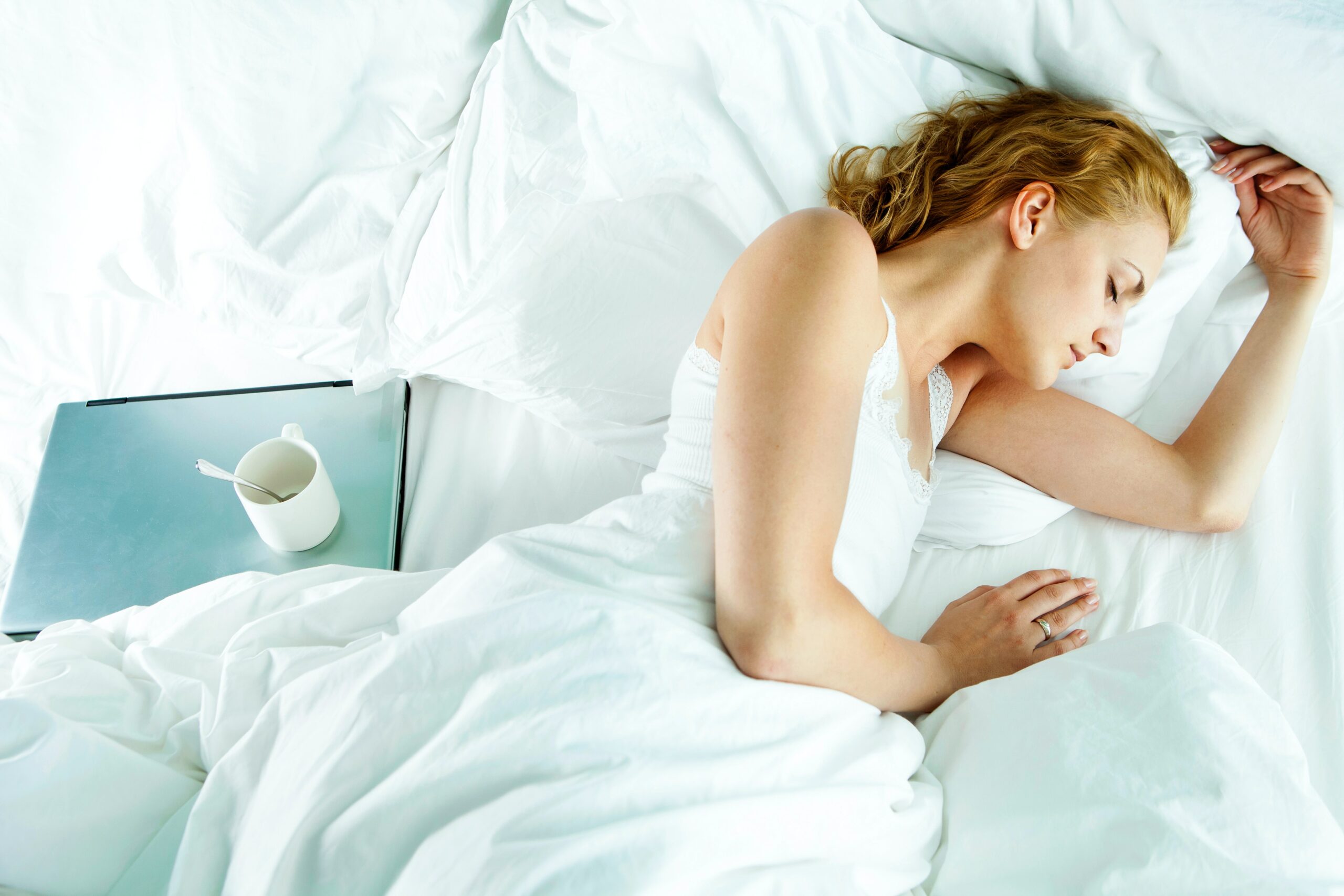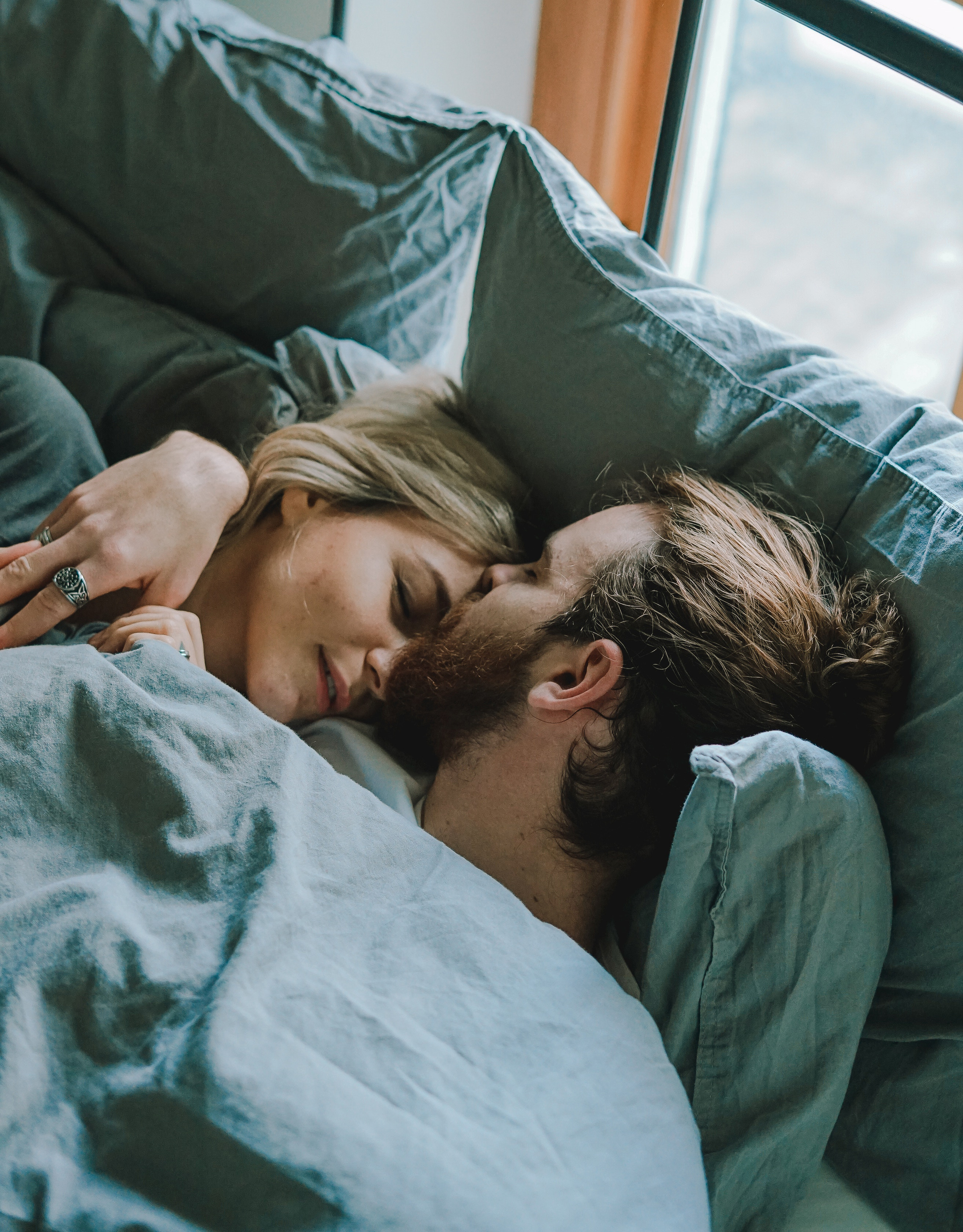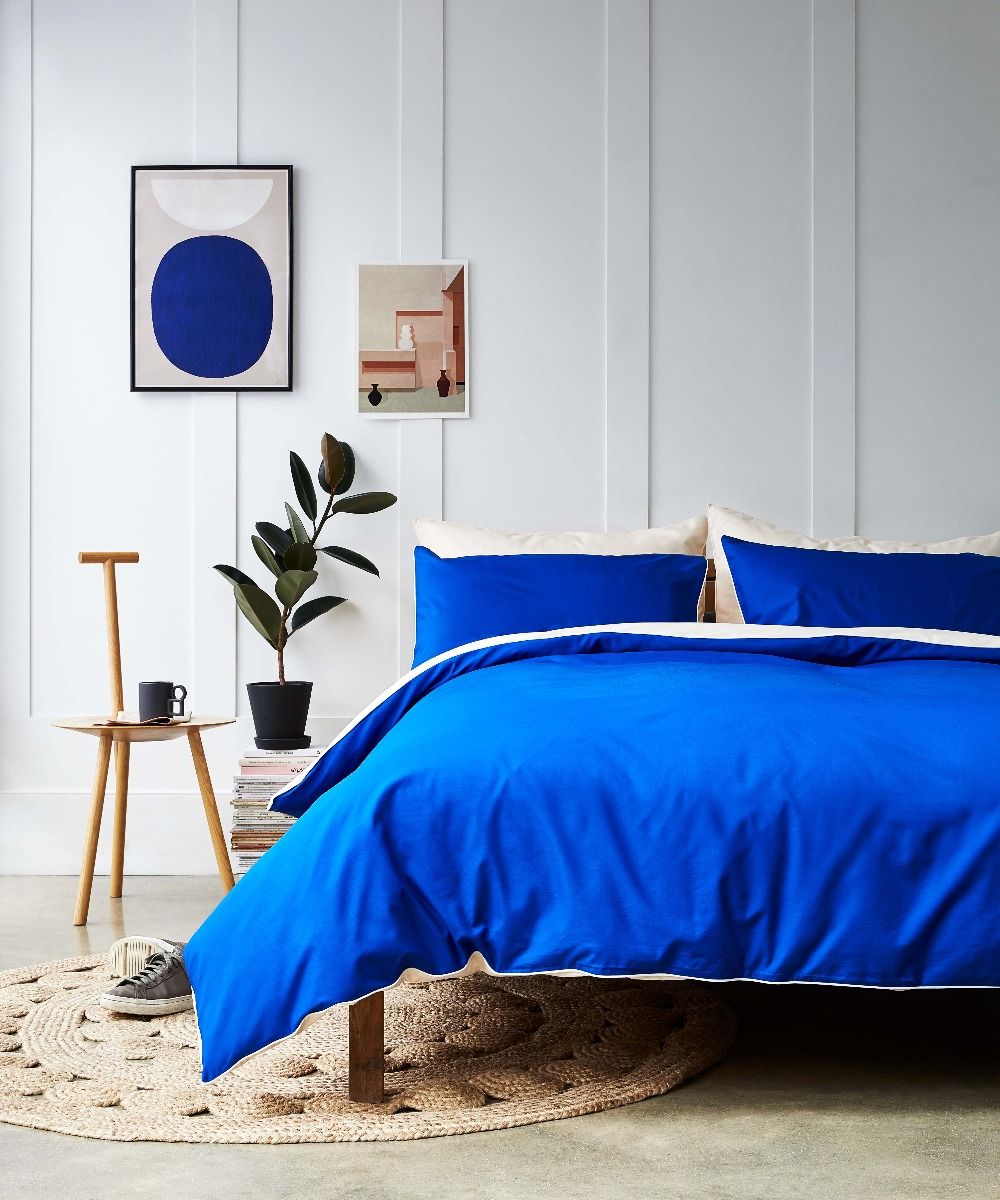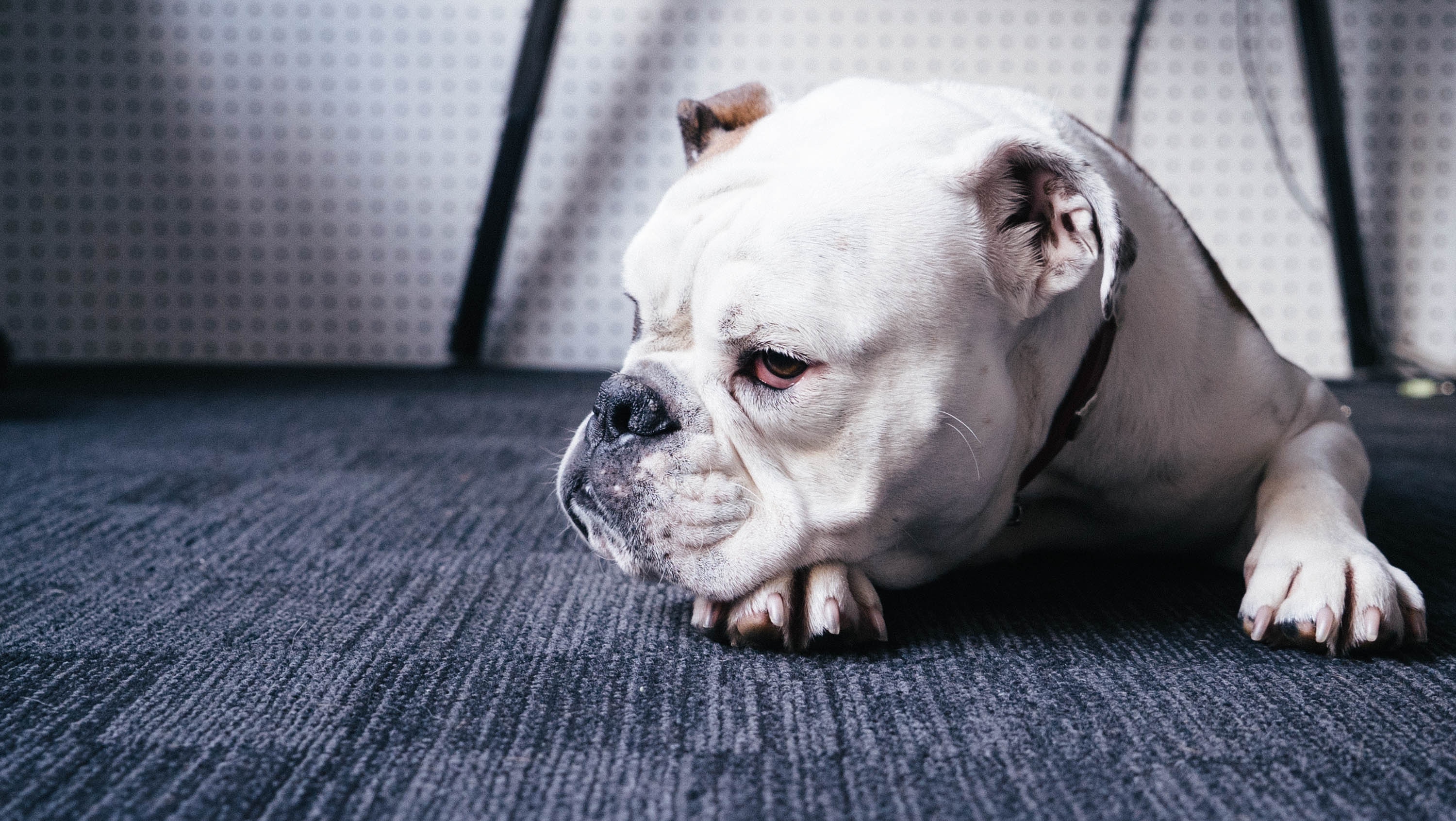Our bedtime is supposed to be the most relaxing time, where we can unwind from the stresses of our day. Unfortunately, it can be difficult to leave the anxiety we feel during the daytime by our bedroom door. It is estimated that 5% of the UK population suffer from Generalised Anxiety Disorder (GAD) at any one time. Various factors, such as work and family life, can cause the symptoms of anxiety to plague our relaxation time.
Even without an anxiety condition, many of us will sometimes find it difficult to switch off our brains before bed. With many people working from home, our bedroom may not feel like the sleep sanctuary it once was. Our guide to dealing with anxiety at bedtime will allow you to clear your mind for a peaceful night’s rest.
Switching Off
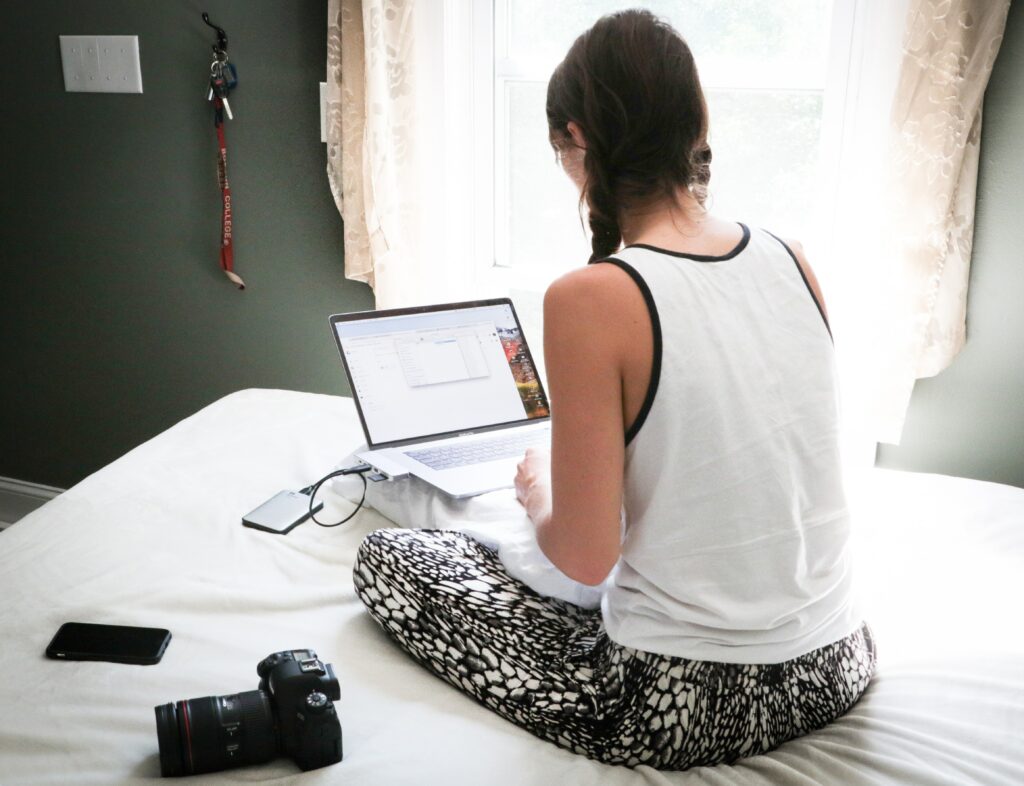
In order to unwind from the day, it is essential to not take the work of the day to bed with you. Devices, via phones, tablets, or laptops, can help cause this. Scrolling through social media or watching videos before bed may seem like a fun way to unwind. However, they may be more of a hindrance than a help. Sleep experts warn that there is a correlation between screen time before bed and the longer it takes to fall asleep.
Of course, not everyone has the luxury of being able to keep devices out of their bedrooms. With many people working from home, without a home office room to use, many will take to their bedrooms as a private workspace during the day. This means that your bed, a place used for relaxation, may become mentally associated with the work you perform there during the day.
What is important, in that case, is to do as much as possible with your bedroom workspace when transitioning from daytime to nighttime. Small shifts in your environment can cause a huge impact in shifting your headspace to associating your bedroom from a daytime office to a night time sanctuary. See Myza’s guide to transforming your bedroom into a workspace for tips on easy transitions from office to bedroom.
Give Yourself Time to Unwind

This makes controlling your use of devices all the more important. Most of us cannot put down our phones and immediately drift off – this is why decompression time is essential. If you struggle to sleep after scrolling, you could either use this time to say goodnight to anyone you’re messaging or shut down any apps. Alternatively, you could use this time as a time of being fully “switched off”. This includes doing relaxing off-screen activities such as reading, or the luxury of doing nothing at all.
In order to maximise decompression, keeping a regular sleep schedule will only benefit keeping a peaceful mind before bed. Allowing your body to become accustomed to switching off and falling asleep at a regular time, without the distraction of devices or the outside world, will help you get into a good cycle.
Pre-Bed Pickups
As shown through decompression, what matters most in preventing anxiety before bed is often what you do before it’s time to sleep. If you are plagued by anxiety long before bed, it is unrealistic to expect that it will all go away when your head hits the pillow. Using your time after work to transition into relaxation and shift into a different headspace from working hours will put you in a better position for bed. This will ultimately help you sleep for more hours and feel better during the day – a perfect circle of mindfulness
Active Pickups

Going from sitting at a desk for work from engaging in challenging physical activity is a great way to switch up before bedtime. Although we may feel tempted to crash on the sofa after a stressful working day, sitting idle may keep that stress going if we do not change our environment or pace.
Exercise has been proven to help ease anxiety on its own. Physical activity has been proven to help release chemicals in the brain such as serotonin, a chemical thats uptake is designed to reduce anxiety. Challenging ourselves and our bodies to help them grow strong not only proves a great distraction from the activities of the office, but has shown long-term improvements in how we deal with anxiety. Exercising helps develop the part of our brain that holds the executive function. This function helps us deal with perceived threats that we deal with through anxiety.
Exercise before bed need not be a challenge, however. Less-demanding exercises, such as yoga or pilates, provide many benefits. These slower exercises allow us to improve our emotional balance, and train us to clear our mind. For tools to help exercise well, see Myza’s yoga and activewear collection.
Relaxing Pickups
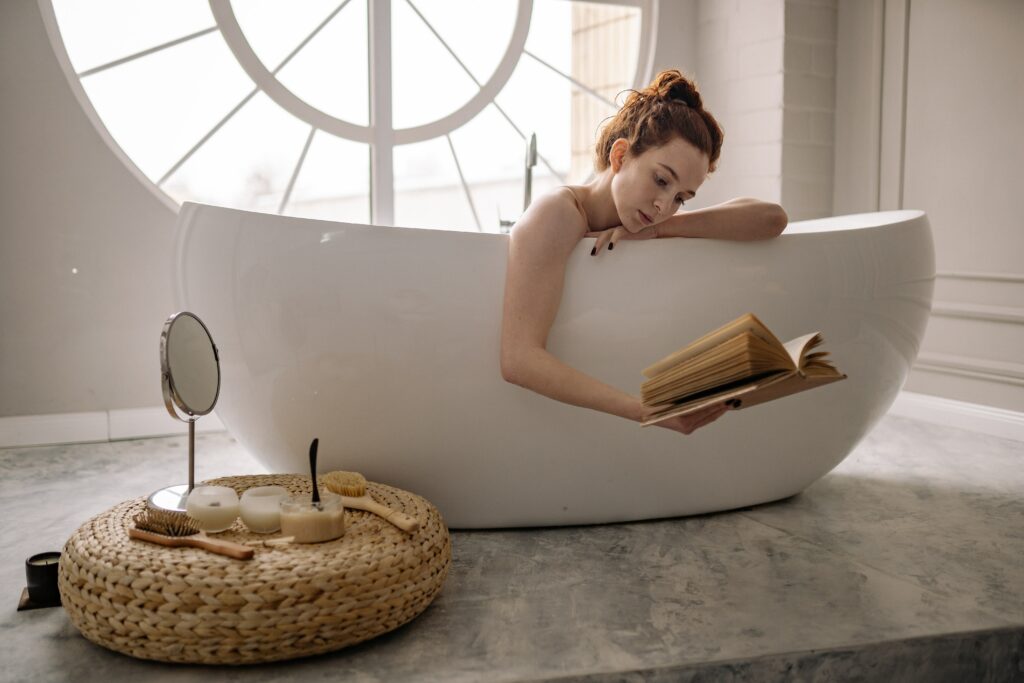
Although exercise is beneficial, you don’t have to keep grinding long after work is finished to improve anxiety. Relaxing well, in a way that prevents prolonged anxiety, is essential. Feeling better after a hot bath is not an old wive’s tale. Rather, it has proven to benefit our mental health. Bathing helps tackle the physical symptoms of anxiety that keep those anxious thoughts going. These include muscle ache, headaches, and stomach pain.
In or out of the bath, mindfulness tools help stress melt away. Bath salts, essential oils and scented candles can be used in any room of the house. They can help us forget work stresses by using its herbal benefits. These include inducing relaxation hormones and improving feelings of mental fatigue. See our bath and shower range, as well as our range of oils, to find the right therapy for you.
Mindfulness activities, such as meditation or reading, are just stimulating enough that they distract us from stress. Both activities encourage us to engage in mental focus. This focus and shift into a new headspace helps give us the brain power required to deal with stressful thoughts. However, they are not too stimulating to keep the mind active. Instead, they help act as a transition towards sleep later on. These activities are not rushed and can be done at a leisurely pace, helping us to get ready for bed.


